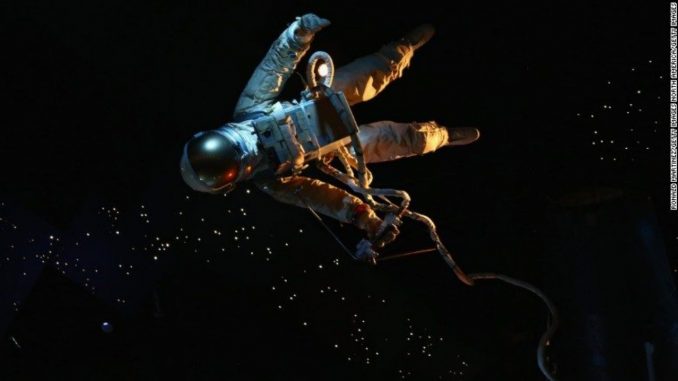
Nigeria is set to launch an astronaut into space by 2030, an ingenuity that has spurred discussions around whether the country will or will not achieve the dream, and if it should actually send a person out there.
When Dr Ogbonnaya Onu, Nigerian Minister of Science and Technology, announced that the country would be sending an astronaut by 2030, the message was received with disbelief.
You see, earlier on, before the announcement in Nigeria’s city of Abuja, a scam message was making rounds via Facebook claiming that a Nigerian astronaut was lost in space and needed financial aid.
So when the minister made his statement, already, people’s minds had been corrupted by the scam, which apparently is a letter that was penned 12 years ago. But as it appears, Nigeria is prepared to join the league of other leading nations in space technology, including Canada, Russia, China, Japan, India and the United States, among others.
“The space program is very important,” said Dr Ogbonnaya Onu, Minister of Science and Technology, during a speech in Abuja. “Space is a major asset that Nigeria must be involved in for the purpose of protecting national interests,” he added.
This is not the very first time Nigeria is sending out an astronaut into space, according to Deji Bryce Olukotun who has authored ‘Nigerians in Space’.
Olukotun, who has written about the Nigerian space program said in an article that Nigeria sent a person into space in 2006. The writer said the country sent a teenage girl “on a parabolic flight- that’s when a jet takes a quick plunge that creates 30 seconds of weightlessness—and the 17-year old was called an astronaut”.
What is astounding, however, about this new development is the fact that Nigeria is preparing to launch an astronaut using its own “indigenous rockets, developed through its own know-how and ingenuity—a much bolder pronouncement”, the writer argued.
Already, plans to see a Nigerian Space Agency delegation visit its partners in China this month to discuss logistics and investment for a manned space mission, are underway.
Nigeria’s space program
Since 2003, The National Space Research and Development Agency (NASRDA) has launched five satellites. Three of these are still in orbit relaying vital services to the government ranging from analyzing climate data to improve farming practices, to helping the nation save hostages from Boko Haram.
Felix Ale, NASRDA communications chief was quoted by CNN as saying that the technologies at the agency contribute to various sectors that benefit the nation. “Space applications are key to development.”
According to Ale, “the president is committed to the program. “To ensure that dreams transfer to reality.”
But not everyone sees the sending of an astronaut to space as an ingenious idea. Professor Calestous Juma, a specialist on space programs in developing countries at the Harvard Kennedy School, proposes the mission represents “lofty ambition” that “may or may not happen as planned.”
The professor is certain that the vision is more important than the outcome.
“Scientific, technological and engineering capabilities would have direct economic benefits to Nigeria long before the decision of putting a person in space is made,” says Juma. “Space walks are probably the least important. It is the scientific and technological infrastructure and its linkages to the rest of the economy that matters.”
Eight years of training
To launch an astronaut into orbit will take about eight years of training, which Nigeria is ready to pull through.
Expressing his optimism, Dr Spenser Onuh, head of the Centre for Satellite Technology Development said: “2030 is realistic in my opinion…Responses from the international collaborators are very supportive and encouraging.”
The Nigerian space program is expected to benefit the country as well as Africa at large. Ale hopes that the development will encourage the rest of Africa to get involved.
Image credit: Ronald Martinez/ Getty images
By: Kajuju Murori

The country which didn’t make any it’s own machine?
Leave that Nigeria, we have farms for farming but Nigerian government didn’t stop buying farming machines from foreign countries because they can’t make their own made.
We have Oil but no refineries.